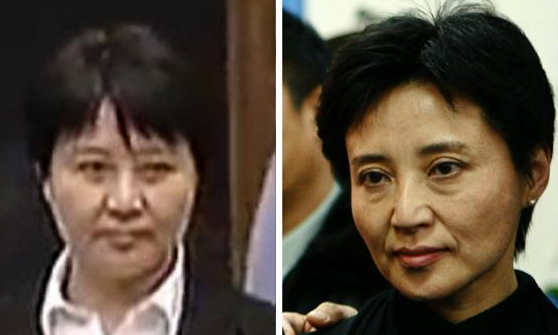Ding Zui

In May of 2009, a well-to-do 20-year-old named Hu Bin struck a working-class pedestrian while drag racing. While others rushed to help the victim, Hu and his friends, according to the Wall Street Journal, joked and smoked cigarettes until an ambulance arrived. Ask a random person if Hu committed a crime and the answer would be yes. But the police and prosecutors did not, at first, treat Hu’s crime as anything serious. Rather, what they did looked like a cover-up — especially to those who could identify with the victim. After a minor uprising, the police took a second look at Hu’s crime and prosecuted it as such. But even then, as Slate noted this summer, “Hu received a three-year prison sentence, an exceptionally light punishment in a country where drunk drivers guilty of similar accidents can receive the death penalty.”
This relatively light punishment further provoked the rank-and-file Chinese, adding an additional layer of distrust in the authorities. But what probably happened next — in China, the facts are at times hard to come by — sounds like something out of a dime store novel. Hu, as the story goes, did not go to jail. Someone else did instead. Someone he hired.
As Slate recounted in the link above (from this summer), the hoi polloi alleged that Hu hired a lookalike to serve out his sentence. The government, of course, denied the allegations, but the rumor mill took over. But while this switcheroo is seemingly impossible — a DNA test or even a fingerprint sample would easily disprove the rumors — no such evidence to the contrary was offered. The rank-and-file’s cynicism was left unshaken.
And perhaps for good reason, as the notion that such a switch could happen is not so outlandish, at least not in China. The act of hiring a patsy to go to prison for you — called ding zui, literally “substitute criminal” — is a well-known secret there. The Slate article detailed some of the often spoken-of examples:
In 2009, a hospital president who caused a deadly traffic accident hired an employee’s father to “confess” and serve as his stand-in. A company chairman is currently charged with allegedly arranging criminal substitutes for the executives of two other companies. In another case, after hitting and killing a motorcyclist, a man driving without a license hired a substitute for roughly $8,000. The owner of a demolition company that illegally demolished a home earlier this year hired a destitute man, who made his living scavenging in the rubble of razed homes, and promised him $31 for each day the “body double” spent in jail.
Hu Bin’s case is just another alleged “body double” matter — and, if an even more recent case is evidence, ding zui may be even more common than thought.
In August of this year, a woman named Gu Kailai was accused of murdering a British man named Neil Heywood. Gu’s husband, Bo Xilai, was formerly a leader of the Communist Party, but Xilai was ousted after a wiretapping scandal. Both Bo and Gu were business associates of Heywood’s, and, for reasons unclear, Gu likely murdered Heywood. When brought to trial, she did not contest the charges and was given a “suspended death sentence.” She is to serve the next 14 years to life in prison, but, if she commits another crime in the next two years, she is to be executed.
But many Chinese citizens looked at the woman being sentenced and found it strange that she’d not put up a defense, given the severity of the crime and of the punishment. The ding zui theory came into the collective mindset, and many, comparing her to the woman in the news a few years earlier, saw someone different. As the New York Times reported, Gu “appeared to have gained considerable weight, and a relative expressed shock, saying her face had changed dramatically since they had last met.” Slate, in another article on ding zui, published the two photos above. And the BBC noted that Chinese citizens took to the Internet to speculate that the woman on trial was not, in fact, Gu Kailai.
But these conspiracy theories — or, at least, the online chatter around them — were about to be simultaneously fanned and extinguished. As reported by the China Daily Mail, soon after the theories emerged, the Chinese government began to block all online conversations on the topic.
Bonus fact: About ten years ago, someone put up a parody “mirror image” of Google’s search engine called “elgooG,” showing everything Google shows but in reverse. (The site is still up at elgoog.im.) In September of 2002, New Scientist discovered that the joke site had a practical, serious use — Chinese users could access it in spite of government censorship, and therefore, search the web using Google (given some proficiency in reading text backwards). The powers that be, for some reason (probably ignorance of elgooG’s existence), had not blocked the service.
From the Archives: To Kill a Sparrow: An (old) Chinese policy with really poor results.
Related: Body Double, the movie, from 1984. Over 100 reviews averaging 3.7 stars, but a lot of people hated it — including this one reviewer who called it a “sloppy mess” which “might be the worst movie [he’s] ever seen.”

Leave a comment